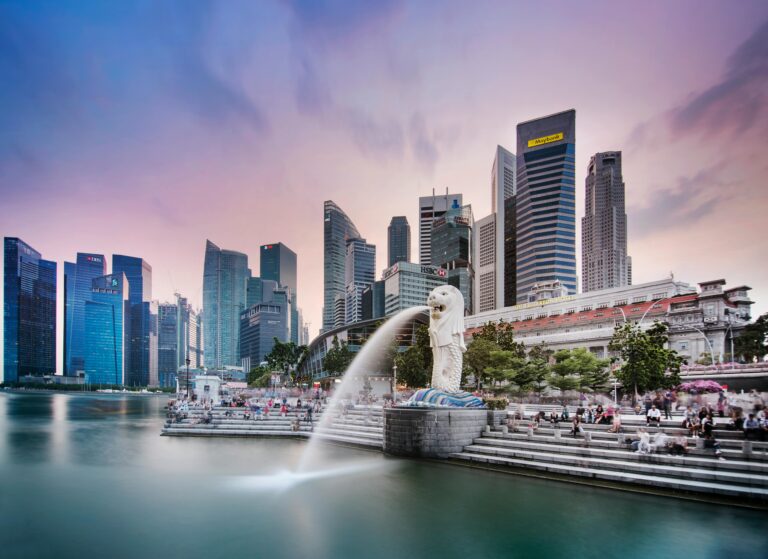
Singapore, often hailed as a global city of the future, has cemented its reputation not only through economic prowess but also through cutting-edge technological innovations. From smart cities to biomedical advancements, Singapore stands at the forefront of innovation, leveraging technology to enhance efficiency, sustainability, and quality of life. Here’s an exploration of Singapore’s journey into the realm of technology and innovation.
Read more articles here: https://learntodrivesg.com/
Smart Nation Initiative
At the heart of Singapore’s technological transformation lies the Smart Nation initiative, launched in 2014. This ambitious program aims to harness technology to improve living, create economic opportunities, and build a cohesive society. Key components include:
- Smart Governance: Utilizing data analytics and AI to enhance policy-making and public service delivery.
- Smart Mobility: Innovations in autonomous vehicles, traffic management systems, and integrated transport solutions.
- Smart Living: IoT devices and sensors enhancing urban living through energy efficiency, waste management, and public safety.
Biomedical Sciences and Healthcare Innovations in Singapore
Singapore has emerged as a hub for biomedical research and healthcare innovations, attracting top talent and investments. Key initiatives include:
- Biopolis: A world-class research and development hub housing biomedical research institutions, fostering collaboration and breakthroughs.
- Precision Medicine: Tailoring healthcare treatments based on individual genetic profiles, advancing personalized medicine.
- HealthTech Innovation: Development of medical devices, digital health solutions, and telemedicine platforms.
Financial Technology (Fintech) Hub in Singapore
Singapore’s strategic location and robust regulatory framework have propelled it to become a leading fintech hub in Asia. Initiatives include:
- Regulatory Sandbox: Facilitating experimentation and innovation in financial services while ensuring regulatory compliance.
- Blockchain and Cryptocurrency: Adoption of blockchain technology for secure transactions and digital currencies.
- Digital Banking: Licenses granted to digital banks, promoting competition and innovation in banking services.
Sustainable Urban Solutions
Despite its small size, Singapore has implemented innovative solutions to enhance environmental sustainability and urban resilience:
- Gardens by the Bay: Iconic gardens featuring sustainable practices and futuristic Supertree structures that serve as vertical gardens and energy sources.
- Water Management: NEWater initiative for water recycling, ensuring water security in a water-scarce environment.
- Green Buildings: Adoption of green building technologies and standards to reduce carbon footprint and energy consumption.
Future Directions and Challenges in Singapore
Looking ahead, Singapore continues to push the boundaries of technological innovation while navigating challenges such as workforce skills development and ethical considerations in AI and biotechnology. Future directions include:
- 5G and Connectivity: Expanding 5G infrastructure to support IoT and smart devices.
- Cybersecurity: Strengthening defenses against cyber threats and ensuring data protection.
- Tech Talent Development: Investing in STEM education and talent retention to sustain innovation momentum.
Smart Cities and Urban Solutions
Singapore’s commitment to becoming a Smart Nation extends beyond technological innovations into comprehensive urban solutions:
- Integrated Urban Planning: Urban planners use data analytics and simulation tools to optimize city layouts, transportation networks, and public amenities.
- Digital Twin: Development of a digital replica of the city to test scenarios and optimize urban operations in real-time.
- Public Wi-Fi and Connectivity: Extensive coverage of public Wi-Fi and IoT sensors to collect data for smart city applications, such as traffic management and waste collection.
Innovations in Artificial Intelligence
Singapore is investing heavily in artificial intelligence (AI) research and applications across various sectors:
- AI in Healthcare: AI-powered diagnostics, personalized treatment recommendations, and predictive analytics to improve patient outcomes and operational efficiency in healthcare institutions.
- AI in Finance: Automated trading algorithms, risk assessment models, and customer service chatbots transforming the financial services industry.
- Ethical AI: Development of frameworks and guidelines to ensure responsible AI deployment, including transparency, fairness, and accountability.
Aerospace and Advanced Manufacturing in Singapore
Singapore has established itself as a regional hub for aerospace and advanced manufacturing:
- Aerospace Hub: Changi Airport is a major aviation hub, with facilities for aircraft maintenance, repair, and overhaul (MRO).
- Advanced Manufacturing: Adoption of robotics, additive manufacturing (3D printing), and automation to enhance productivity and precision in manufacturing processes.
- Industry 4.0 Initiatives: Integration of IoT, big data analytics, and AI to create smart factories capable of autonomous decision-making and real-time optimization.
Cultural and Creative Industries
Beyond technology and industry, Singapore fosters creativity and cultural innovation:
- ArtScience Museum: Showcases exhibitions at the intersection of art, science, culture, and technology, fostering creative thinking and cross-disciplinary collaborations.
- Media and Entertainment: Development of digital content creation, animation studios, and gaming industry initiatives to promote Singapore as a creative hub in Asia.
- Design Thinking: Incorporation of design thinking principles into business innovation and public policy development, emphasizing user-centric solutions and empathy-driven design.
International Collaboration and Partnerships
Singapore actively collaborates with global partners to foster innovation and tackle global challenges:
- Research Collaborations: Joint research projects and partnerships with universities, research institutions, and multinational corporations to drive innovation in key sectors.
- Trade and Investment: Bilateral and multilateral agreements to facilitate technology transfer, investment, and knowledge exchange in emerging technologies.
- Global Innovation Exchanges: Participation in international forums, conferences, and initiatives to showcase Singapore’s technological achievements and attract global talent and investment.
Conclusion
Singapore’s journey into technology and innovation exemplifies its commitment to staying ahead in a rapidly evolving world. By embracing technological advancements across various sectors, Singapore not only enhances its economic competitiveness but also improves the quality of life for its residents. As it continues to innovate and adapt, Singapore remains a beacon of progress and possibility in the global landscape of technological advancements.






